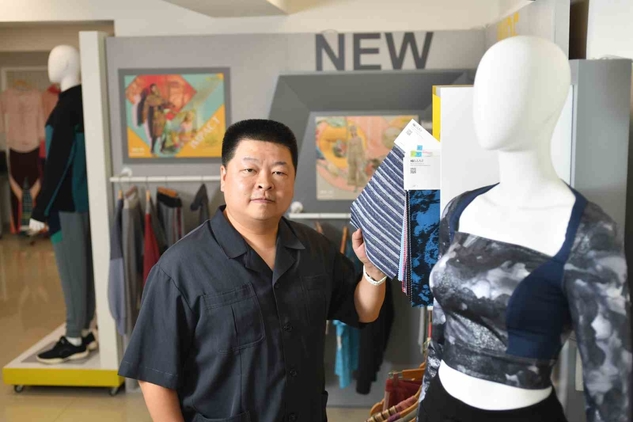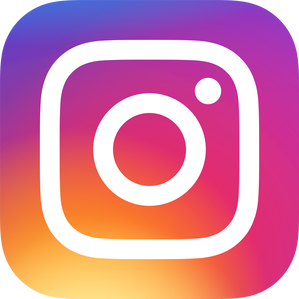Taiwan Turns Plastic Waste in the Caribbean into Big Brand Apparel

Source:Kuo-Tai Liu
There is a worldwide craze for plastic waste from Haiti. Major brands including adidas and Coca-Cola have all pledged to use recycled materials in their products, and leading Taiwanese apparel contract manufacturer New Wide Group bluntly states that these days it is impossible to find clients unless you use recycled fabrics. Working with a UK-based recycling firm, they are turning plastic bottles from Haiti into functional fabric, not only helping local women, but attracting considerable notice from sports brands for their cutting-edge technology employed.
Views
Taiwan Turns Plastic Waste in the Caribbean into Big Brand Apparel
By Kuo-chen Lu, Ching Fang WuFrom CommonWealth Magazine (vol. 692 )
The Caribbean countries of Haiti and Honduras have long coastlines and coral reefs. What was once a diving paradises has long turned into a sea of plastic waste.
Now, plastic bottles are being collected by local women, recycled and then made into clothing, which helps the disadvantaged and victims of domestic abuse. In this way, ocean waste has become a sort of new hope for the women of Haiti and Honduras.
 Source: Associated Press
Source: Associated Press
Sea of Plastic, Taiwan Flexes Technological Might
At the 2019 Taipei International Textiles Fair, fabrics made from plastic bottles collected in the Caribbean 15,000 kilometers away was front and center on display.
“This is fabric material from a partnership between New Wide and First Mile, a UK-based recycling company. The raw materials originate from recycled plastic bottles from Haiti and Honduras,” says Yen-ling Shao, senior vice president of marketing for New Wide International, describing the piece of fabric in her hand.
Giving new life to recycled ocean waste is an emerging global trend.
Unlike pure recycling, this is the symbiosis of business and public service. Yen-ling Shao relates that First Mile established a foundation to help local women that have suffered abuse, entered early marriages, and have been undereducated to obtain loans, encourage them to recycle plastic bottles, then turn the fabric into clothing for sale. The more clothes they sell, the more people they can help.
After the bottles are collected together, they are compressed into bricks, loaded onto cargo ships, a month later, they arrive in Taiwan. Next, the bottles are shredded, washed, sorted, granulated, and then transformed back into materials to make bottles or yarn material for textiles. While it may appear simple, the process incorporates considerable technical know-how.
“Recycled bottles must be purified and free of toxins to conform with food container regulations,” said Hsiu-chun Chien, director of public affairs and communications at Swire Coca-Cola Beverages Ltd., Taiwan, a customer of Taiwanese recycled bottles.
Coke and Famous Sports Brands Place Orders
Taiwan is capable of turning marine garbage into recycled materials that do not take a back seat to virgin raw materials. Not only can it be made into clothes, but also into food containers. For example, Coca-Cola bottles in Hong Kong and Australia are made with recycled materials from Taiwan.
But this is just the first step, followed by various processes. International brands are loyal customers not simply out of compassion for the disadvantaged, but also the secret embodied in the technology.
For example, to produce colorful, bright and relatively environmentally friendly fabrics, the color must be incorporated during granulating. In this way, the subsequently extracted yarn is colored, omitting the dyeing process and reducing water consumption, making it more environmentally friendly than conventional methods.
Next comes extracting threads and weaving. Taking out a piece of fabric, perforated with both large holes and small holes, Shao relates that when worn for running, the breeze passes through the larger holes before the smaller holes, to enhance the body’s feeling of coolness. And the longer one runs, the cooler it gets.
The perforations are not for aesthetics, but a unique weaving technique that simulates air flow based on aerodynamic principles, refined over the process of exhaustive experimentation.
Sunny Huang, executive director of New Wide, a Taiwanese fabric industry leader with annual revenue of US $1 billion, said that they experiment with more than a thousand kinds of fabrics every year, such as mixing Xylitol (often used to make chewing gum) with recycled plastic bottles to make fabric, hoping to make clothing as cool and dry as chewing gum. They try all kinds of wild and crazy ideals, of which less than three percent can be commercialized.
It is this exhaustive research and development that enables the rebirth of the bottles recovered by Haitian women, and imbues them with more functionality.
 Photo by Chien-Ying Chiu/CW
Photo by Chien-Ying Chiu/CW
This also attracts buyers from all over the world to Taiwan in the search for recycled fabrics. More than 1,000 booths at the Taipei International Textile Fair featured fabrics for sale made from recycled bottles and fishing nets.
Sunny Huang says, "If we showed virgin materials rather than recycled ones, ,we don’t even get to sit down with a customer, as we’d be wasting each other’s time." It is as if the whole world is only interested in buying fabrics and clothing made from recycled PET bottles and fishing nets.
Previously, only jerseys that were shortlisted for the FIFA World Cup's top 32 teams would be made from recycled bottles, and their publicity value outweighed utility. But now, it is a completely different story.
The Bottle Wars Have Begun
As early as 2024, brands like adidas and Puma expect to use 100 percent recycled materials from plastic bottles or fishing nets. Coca-Cola has also pledged that by 2030, an average of 50% of its product packaging will use recycled materials. All of these cannot be accomplished without Taiwan.
This is where the commercial potential comes into play. Even if every single one of the five billion PET bottles Taiwan consumes every year was recycled to make fabrics, it would not even satisfy the needs of adidas alone. If we add global brands with similar policies, the volume of PET bottles required would be stratospheric.
This has triggered a great battle over PET bottles. As Sunny Huang notes, "A huge industrial chain is emerging, from collection, remanufacturing to processing, because everyone wants good recycled PET bottle materials and suppliers. It has even given rise to a new type of business: identify whether the fabric is recycled.” Using a special light source, genuine recycled fabric will immediately reflect light; otherwise, it is fake.
This is the solution to ocean litter. When PET bottles become scarcer and more expensive, who will recklessly discard them?
For Taiwan, ocean rubbish has overturned the business models of the past. Previously, negotiations with customers focused on price, quality and delivery time; now, the first order of discussion is sustainability and technology. Taiwan has came up with numerous solutions and products to resolve the the most pressing environmental issues. For example, popular fabric made from reconstituted PET bottles from Haiti, or biodegradable clothes that are currently under development.
Sunny Huang relates that only through environmental sustainability and social responsibility can actual order negotiations be carried out. Sustainability now carries a competitive threshold, and failure to provide it will lead to elimination from the market.
Plastic bottles from Haiti journey across the seas to Taiwan. Transnational cooperative efforts to combat marine garbage have taught Taiwanese companies that the battle for survival in the future will be no profitability without sustainability.
Have you read?
♦ Taiwan Makes Straws and Salad Boxes Environmentally Friendly
♦ Made-in-Taiwan Biodegradable Plastic, Delivering Big for Starbucks
♦ He’s Turning Taiwan’s Used Fast Food Restaurant Oil Into Biodiesel
♦ Turning Ocean Waste into Footwear - Taiwan Makes it Possible
New Wide Enterprise Co., Ltd
- Established / 1975
- Chairman / Tony Huang
- Core Businesses / Fabric, apparel contract manufacturing
- Operational Achievements / Annual revenue over NT$30 billion
- Critical idea / Turning recycled PET bottles from Haiti and Honduras into famous brand apparel
Translated by David Toman
Uploaded by Sharon Tseng












